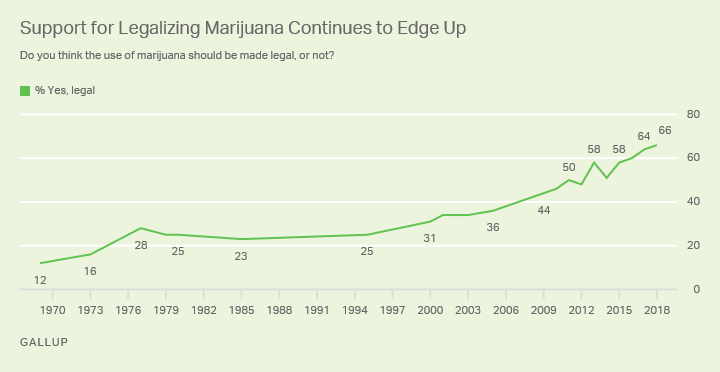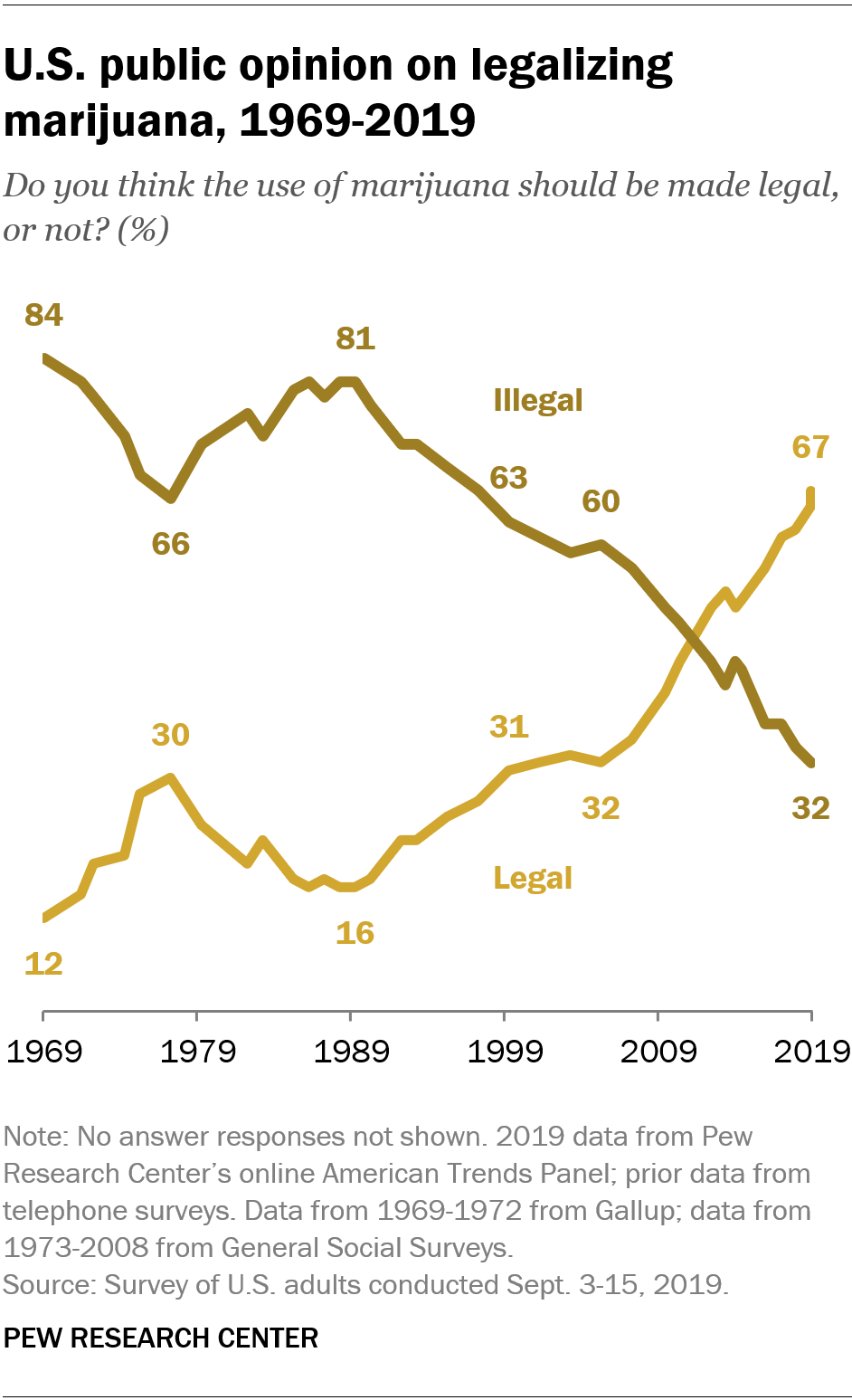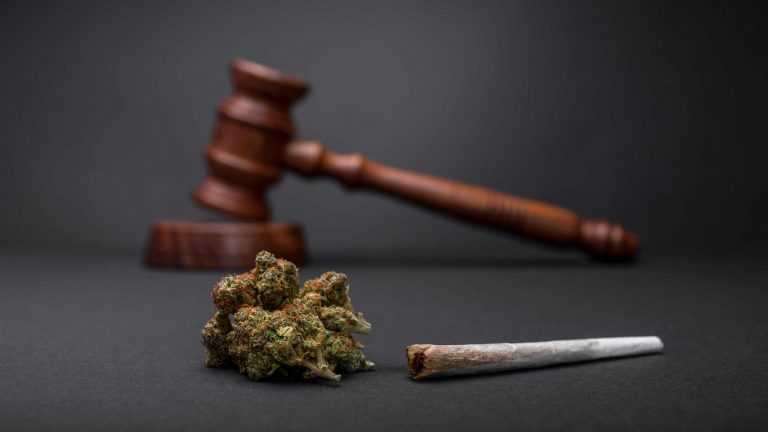In the early 20th century, Cannabis was illegal in every state of the US. But today, twenty states have legally approved the recreational use of it. Although several states have approved it, several movements are still fighting for legalizing Marijuana. Arguments supporting it include the economic and medical benefits it will bring. Economic benefits include increased tax revenue, job opportunities, and investment growth. While medical benefits assertions state that Cannabis is safe to use, there are various ways to intake it, a lesser dosage is needed for treatment, and it is natural.
Why should Cannabis be legalized?
What is the difference between legalization and decriminalization?
Cannabis legalization means removing any government-enforced penalties for possessing or using Cannabis. In some cases, legalization will give way to selling Cannabis legally or growing Cannabis at home. Cannabis legalization is as simple as it sounds. Using Cannabis is allowed and you can’t get into legal trouble for it.
On the other hand, Cannabis decriminalization means eliminating jail or prison time for limited possession of Cannabis. In places where cannabis is decriminalized, it is not legal to possess and consume cannabis. Anyhow, it is also not fully illegal. Decriminalization is a grey zone where usually consumption and possession is tolerated but production and sale are legally punished.
Why was Cannabis made illegal?
Several movements to legalize Marijuana have been prevalent since the late 20th century. One of the breakthroughs in the history of the U.S. was when California approved the legalization of medical Cannabis in 1996, becoming the first state to do such. In 2012, Washington and Colorado legalized the recreational use of Marijuana within their states. Then in 2019, more than 30 states in the U.S. allowed some Marijuana use though it remained unlawful at the federal level. It raises the question of why it remains illegal.
The recognized reason behind the current illegalization of Cannabis in the U.S. is racism.
Cannabis was a familiar drug in the U.S. before and was used by Americans rarely. However, the term Marihuana is a foreign term Americans are unfamiliar with. In 1910, Mexicans began moving to the U.S. because of the Mexican Revolution. As they moved, they brought the tradition of smoking Marihuana.
Americans became fearful with the growing number of Mexican immigrants. Then, it circulates that the use of Cannabis can cause blood lust which made Americans more terrified of Mexicans. Fears surrounded Americans as they heard the news regarding Americans’ disruptive behaviors that are allegedly associated with the use of Marihuana. People in the states did not realize that Marihuana is already present in their medicine cabinets because Cannabis was already part of most tinctures and medicines available back then, even before Mexican immigrants arrived.
Later, the term Cannabis was replaced mainly by Anglicized Marijuana. It is done to stress the foreignness of Marijuana and to promote xenophobia or the hate or prejudice of people from other countries. By that time, states in the U.S. had passed laws to ban Marijuana.
If you want to find out more about this you can watch our YouTube video about why cannabis was really made illegal.
Where is Marijuana Legal?
Although several states allow Marijuana, the federal government strictly prohibits it. They classified it as a Schedule 1 drug under the Controlled Substance Act. Schedule 1 drug means that the government assumes that a particular substance, such as Marijuana, has no currently accepted medical use and has a high tendency for being abused. Growing, selling, and possessing Marijuana violates federal drug laws.
Legalized Marijuana has been varying and changing across the 50 states in the United States. Today, the following states legally allow recreational use of Marijuana:
- Colorado
- Washington
- Alaska
- Oregon
- Washington, D.C.
- California
- Maine
- Massachusetts
- Nevada
- Michigan
- Vermont
- Guam
- Illinois
- Arizona
- Montana
- New Jersey
- New York
- Virginia
- New Mexico
- Connecticut
What does the data say regarding legalizing Cannabis?
Cannabis legalization is still a widespread discussion to date. The support has been increasing through the years. In the survey conducted by Gallup, an American company famous for running public opinion polls, the support to legalize Cannabis rose from 12% in 1969 to 31% in 2000 to 66% in 2018.

A survey conducted by Pew Research Center says that the support for legalizing Cannabis varies from generation to generation. More than two-thirds of millennials support the legalization of Marijuana, while support from the older age groups is lower. Despite its divided support, it has increased to all groups over the past few years.

The gradual change of opinion is part of the support against punitive justice policies and the war on drugs. In a survey conducted by Pew Research Center in 2014, 63% of Americans agree that states should drop harsh mandatory minimum sentences for nonviolent drug crimes. On the other hand, 63% insisted that drug policy should focus on providing treatment for drug users instead of prosecuting them.
What are the reasons why we should legalize Cannabis?
Economic Benefits
The legalization of Cannabis has become a popular movement in the United States, both for medicinal use and recreation use. Some states in the U.S. have already adopted such measures. One of the essential takeaways of legalizing Cannabis is the economic benefits of regulated commercial availability of Cannabis. I shortlisted below some of the economic benefits attributed to Cannabis legalization:
Increased Tax Revenues
For the past years, Colorado and Washington have recorded positive tax revenues. In 2019, Colorado accumulated more than $302 million from taxes and fees for both medical and recreational use of Cannabis. In 2019, sales in the U.S. recorded $12.2 billion. In the Arcview Market Research and BDS Analytics report, this sale will increase to $31.1 billion by 2024. In addition, in a statement made by Colorado State University-Pueblo’s Institute of Cannabis Research, they found out that the legal Cannabis industry contributed more than $80.8 million to the local economy in 2017, from taxes and other fees.
In December 2019, California reported $411.3 million in excise tax, $98.9 million in cultivation tax, and $335.1 million in sales tax since January 2018. In addition, to a report made by the Massachusetts Cannabis Control Commission in November 2019, $393.7 million accumulated gross sales during the first year of opening Cannabis retailers.
Job Opportunities
Building nurseries and dispensaries will be the first step to take for the states that voted in favor of the medical use of Cannabis. Thus, it would create job opportunities simultaneously, which will boost economic activity in these states.
An RCG Economics and Marijuana Policy Group study on Nevada prompted that legalizing recreational in the state can provide over 41,000 jobs by 2024, further generating $1.7 billion in income. California is estimated to have at least 81,000 additional direct, indirect, and induced jobs because of legalizing Cannabis in the market. Aside from that, it projects an increase of at least $3.5 billion in total labor income.
Investment Growth
Legalizing Cannabis can open up more investments that are beneficial to the economy. It will attract more businesses from other countries to invest in legal Cannabis. However, the issue regarding investment becomes difficult at the federal level as it is illegal to date. Yet, many businesses have been successful as they invest in the countries where Cannabis is already federally legal such as Canada.
Medical Benefits
On top of that, the medical community’s support of legalizing Cannabis has been so vocal for its medical benefits. Some of the arguments who are in favor of using Medical Cannabis include:
Cannabis is Safe to Use
Some people use opioids to manage and lessen pain. However, opioids are highly addictive and are not recommended for the long-term treatment of chronic pain. Thus, it is safer to use Cannabis to treat pain than other prescribed medications.
Variety of Consuming Methods
You do not need to worry if you are sensitive to smoking Cannabis. There are various Cannabis products that you do not need to smoke, such as Cannabidiol oil (CBD), pain relief treatments, and edibles.
Lesser Dosage to Treat
When compounds like CBD are isolated, it can offer treatment options without getting high caused by THC. Thus, you do not need to get high to experience its medicinal benefits.
It is Natural
Many people have been using Cannabis for millennia, long before the argument about legalization and illegalization, as a natural medicinal agent.
The post Why should Cannabis be legalized? appeared first on Weed-Smart.
Source: https://weed-smart.com/why-should-cannabis-be-legalized/






